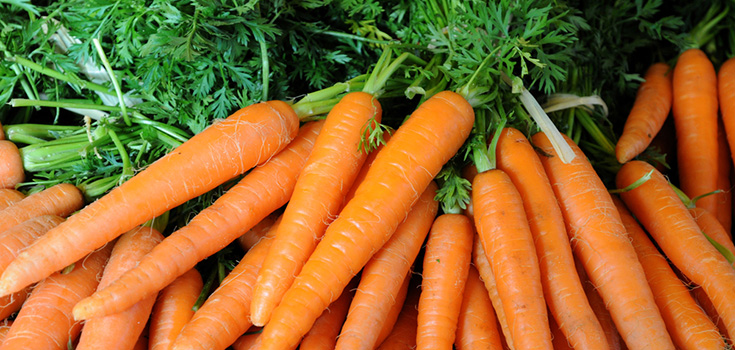Foods for Healthy Eyes


Vision is almost always the most important of the 5 senses to most people. If someone had to choose 1 sense to give up, vision is almost never the choice. Most of what we take in is taken in through the eyes, and keeping the eyes healthy is extremely important.
It seems that the way society is handling the decline in vision is not helping. People are getting less vitamins and nutrients, and glasses are being prescribed for any vision decline. Despite glasses being touted as the solution, it might seem weird to you that when someone starts to wear glasses, their vision doesn’t get better. As vision worsens, stronger prescriptions are given out every year, and vision never seems to budge in the direction we want it to. Imagine walking around with a weak leg, and being prescribed new crutches every year instead of attempting to solve the problem at it’s root.
So how do you improve your vision? Taking in the proper eye-enhancing vitamins and nutrients is certainly a good place to start. It would be ideal to change your diet so it is an overall healthy one. After that, add some vision-boosting foods for your eye health. Here are some foods to eat for your eyesight.
Eggs
Cysteine and sulphur are two components of glutathione, a protein which acts as an antioxidant for your eye lens. Lutein is also a powerful nutrient that helps eye health and has been shown to reduce the risk of developing age-related macular degeneration. Eggs contain all of these.
Related Read: How to Improve your Eyesight
Tomatoes
Tomatoes contain lycopene and lutein, two powerful carotenoids found to help vision. Although lycopene is well documented as a cancer-fighting agent, its antioxidant effects also protect the eyes from sun damage.
Apricots
Rich in beta-carotene and lycopene, apricots harness the capabilities of these phytochemicals and enhance your vision. Beta-carotene converts to vitamin A in the body, an antioxidant which resists oxidative stress damage to the eye lens.
Garlic and Onions
If you aren’t about to go on a date and want to feed your eyes, have sulphur-rich garlic or onions. Garlic and onions are important for glutahione production, a protein which contains sulphur that acts as an antioxidant for the eye lens. Glutathione helps macular degeneration, glaucoma, and cataracts.
Carrots
It’s true, carrots really are essential for healthy eyes. They are rich in beta-carotene, lycopene, and lutein, Beta-carotene converts to vitamin A which resists oxidative stress damage to the lens of the eye. Lycopene is a phytonutrient antioxidant which protects the eye from sun damage. Lutein is a phytonutrient which protects the eye from free radical damage.
Blueberries
Blueberries are packed with eye-enhancing nutrients. Not only do they contain the carotenoids lutein and zeaxanthin, but they also contain anthocyanins, phytonutrients which have been shown to improve night vision. They are also rich in the flavonoids rutin, resveratrol, and quercitin. Two minerals they contain which help with vision are selenium and zinc.
Broccoli
Broccoli protects the retina from free radical damage. A compound found in broccoli called sulphoraphane naturally strengthens the body’s defense system against free radicals.
Zucchini
Zucchini is rich in lutein and zeaxanthin, two carotenoids which protect the central retina from blue and ultraviolet light.
Collard Greens
Collards, like all leafy green vegetables, are high in lutein.
Fatty Fish
Fish are rich in omega-3 fatty acids. They are especially high in EPA and DHA, two very important omega-3 fats which are important for cellular health. 30 percent of the fatty acids which comprise the retina are DHA fatty acids. Unfortunately, fish are highly toxic these days. It may be a better choice to take a high quality omega-3 supplement rather than reply on fish for your essential fatty acids.
Additional Sources:
